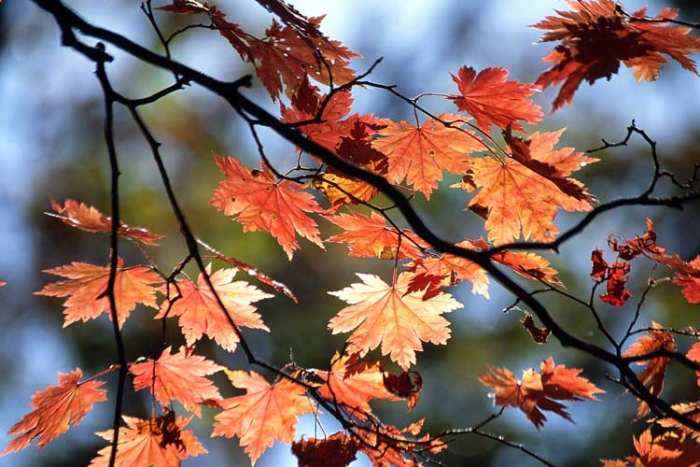Korean Maple
(Acer pseudosieboldianum)
Korean Maple (Acer pseudosieboldianum)
/
/

Dr. Nick V. Kurzenko
Public Domain
Image By:
Dr. Nick V. Kurzenko
Recorded By:
Copyright:
Public Domain
Copyright Notice:
Photo by: Dr. Nick V. Kurzenko | License Type: Public Domain | License URL: http://creativecommons.org/licenses/publicdomain/ | Attribution: 2001 Nick Kurzenko | Publisher: Calphotos |
















































Estimated Native Range
Summary
Acer pseudosieboldianum, commonly known as Korean Maple, is a deciduous shrub or small tree native to mountainous regions and forest edges in Korea and the South Russian Far East. It exhibits a moderate growth rate of about 12 to 18 inches per year and typically reaches a mature height of 15 to 25 feet with a similar spread. The Korean Maple is valued for its palmate leaves which resemble those of the Japanese maple; these leaves turn vibrant shades of red, yellow, and orange in the fall, providing excellent autumn color. Marcescence is a notable characteristic of this species, as it retains a portion of its dried leaves through the winter. In spring, it produces inconspicuous white flowers with purple bracts, followed by new growth that is coated in white, sticky hairs.
The Korean Maple is a hardy alternative to the Japanese maple, particularly suited for colder climates, with successful cultivation reported in regions such as North Dakota, enduring temperatures as low as -43 °F. It is often used in residential landscapes for its ornamental foliage and relatively small size, making it suitable for urban gardens, border plantings, and as a specimen tree. It prefers full sun to part shade, medium water, and well-drained soils. While its bark is thin and susceptible to damage, which can lead to insect and fungal problems, the tree is generally low-maintenance and adaptable to a range of soil conditions.CC BY-SA 4.0
The Korean Maple is a hardy alternative to the Japanese maple, particularly suited for colder climates, with successful cultivation reported in regions such as North Dakota, enduring temperatures as low as -43 °F. It is often used in residential landscapes for its ornamental foliage and relatively small size, making it suitable for urban gardens, border plantings, and as a specimen tree. It prefers full sun to part shade, medium water, and well-drained soils. While its bark is thin and susceptible to damage, which can lead to insect and fungal problems, the tree is generally low-maintenance and adaptable to a range of soil conditions.CC BY-SA 4.0
Plant Description
- Plant Type: Tree
- Height: 15-25 feet
- Width: 15-25 feet
- Growth Rate: Moderate
- Flower Color: N/A
- Flowering Season: Spring
- Leaf Retention: Deciduous
Growth Requirements
- Sun: Full Sun, Part Shade
- Water: Medium
- Drainage: Medium
Common Uses
Bee Garden, Bird Garden, Butterfly Garden, Low Maintenance
Natural Habitat
native to mountainous regions and forest edges in Korea and the South Russian Far East
Other Names
Common Names: Purplebloom Maple , 당단풍나무 , 단단풍나무 , 서울단풍
Scientific Names: Acer pseudosieboldianum , Acer pseudosieboldianum var. takesimense , Acer pseudosieboldianum var. koreanum , Acer takesimense , Acer pseudosieboldianum var. macrocarpum , Acer pseudosieboldianum var. nudicarpum , Acer microsieboldianum , Acer pseudosieboldianum var. lanuginosum , Acer pseudosieboldianum var. languinosum , Acer pseudosieboldianum var. ambiguum
GBIF Accepted Name: Acer pseudosieboldianum (Pax) Kom.